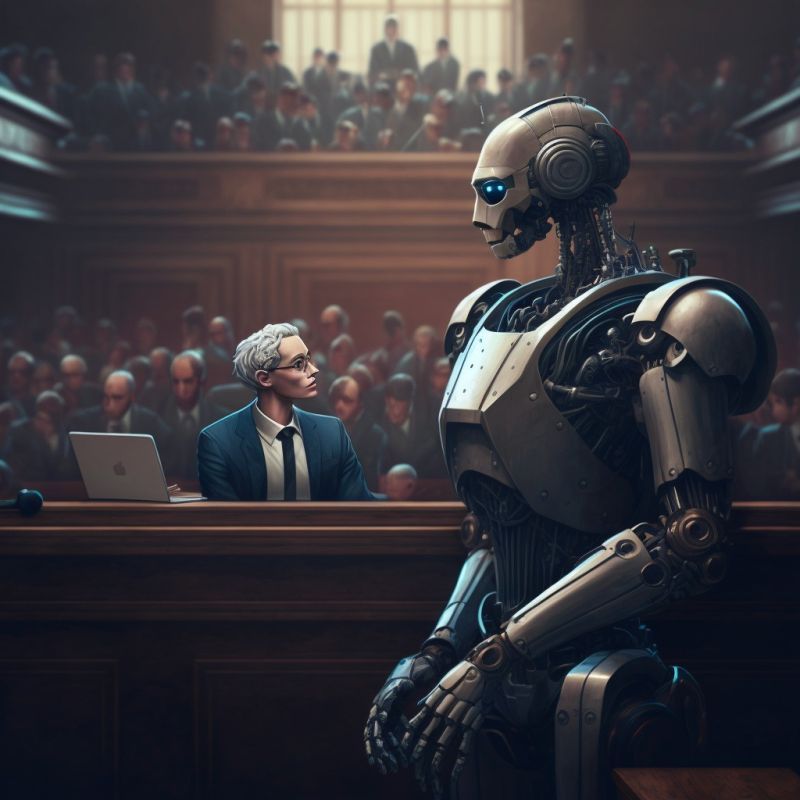By Zion Rufus
The launch of the world’s first robot lawyer which will defend its first case in court this February, has spurred professionals to decry the ‘dehumanizing’ impact of emerging technologies and its considerable potential for altering business processes.
Introduced in 2015 as a chatbot that provides legal advice to consumers, the US-based startup, DoNotPay, will instruct the defendants in two speeding ticket cases in court next month. The AI, which runs on a smartphone, after listening to court proceedings, will give instructions to the defendants on how to respond through an earpiece.
“I don’t know how to feel with these AIs trying to replace almost every work of life, even though I’m a techie and I’m meant to be happy about it,” computer network and systems engineer, Satle Davson shared in a post. “Judgements sometimes do come with emotions, ethics and creativity, the robots won’t do that and will not use the physical to feel rage or empathy.”
Noting that there are numerous ethical issues and implications associated with DoNotPay such as bias, accountability, privacy, and human rights issues, data scientist and corporate financial professional, Kayode Abel advised: “As a result, it is crucial to take these issues into account and ensure that these technologies are used responsibly and ethically going forward.”
In his submission, Ogechi Ngbaka, Attorney and corporate advisor revealed that although these technological advancements are commendable, it is however unfitting for a robot to replace a human lawyer.
“How about ethical issues involved? And which litigant will entrust his/her case to the hands of a machine. Is the robot not required to have a practice license from the bar? Being a Lawyer is not just about having knowledge of the law. On this aspect, the robot must have been able to collect sufficient data and it can be argued, it has enough legal knowledge. But there’s more to it,” Ngbaka stated.
Validating Ngbaka’s concerns on important ethical and practical considerations about the use of robot lawyers in the legal system, Osahor Chukwuma, head of digital partnerships, Access Bank shared that the use of robot lawyers may not be suitable for all types of cases, and it’s possible that some litigants may prefer to have a human lawyer rather than a robot.
He revealed: “There have always been concerns about the possibility of bias in the decision-making process of a robot, especially if it’s trained on data that reflects human biases. Also, there’s a question about accountability, as it’s not clear who will be held responsible if something goes wrong with the robot’s performance. Although this particular case is a minor case and the owner has agreed to take responsibility if the robot goes wrong.”
In his argument, Chukwuma also maintained that although the introduction of this technology will definitely disrupt the legal industry, it also presents an opportunity for lawyers to adapt and evolve.
He urged: “We have to be open to new technology and ways of doing things to stay relevant in today’s fast-changing world. However I still stay with the view that certain “Human” aspects of the legal practice cannot be handled by Robots.”
With AI technologies expected to displace between 400 and 800 million jobs by 2030, transforming various sectors, and exposing large new swaths of the workforce to potential disruption, Nzonda Fotsing, a digital entrepreneur believes that it is time for lawyers to also become more digitally savvy, “and the ones who are able to do that will survive”.
He shared in his LinkedIn post: “As much as AI will take out all mundane tasks, even some more advanced tasks across several industries, it will never take the ability for humans to be in the mix. Solving humanities complex problems requires combining different skill sets. The ones who are able to do that will survive.”






Comment
No comments found.